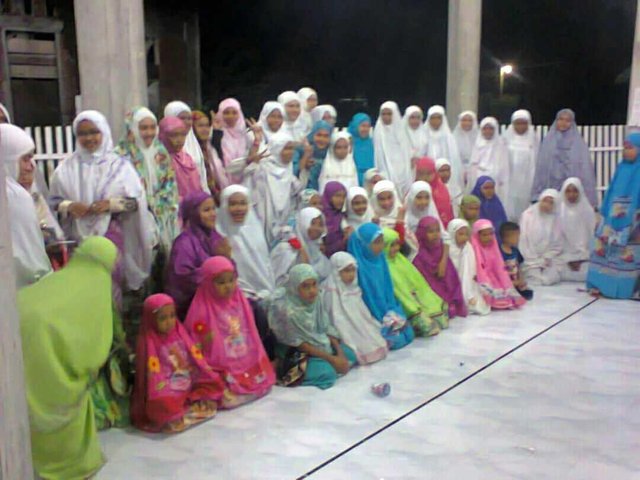Ulog # 001 Learning With Children In Dormitory Education.

Learning is a relatively permanent change in behavior or potential behavior as a result of strengthened experience or practice. Learning is due to the interaction between stimulus and response. A person is considered to have learned something if he can show changes in his behavior. According to this theory, in the important learning is the input in the form of stimulus and output in the form of responses.
Stimulus is anything that the teacher gives to the learner, while the response is the reaction or response of the student to the stimulus provided by the teacher. The process that occurs between the stimulus and the response is not important to note because it can not be observed and can not be measured, which can be observed is the stimulus and response. Therefore, what the teacher (stimulus) and what the student receives (response) must be observable and measurable.
 )
)
There are four stages of human learning, namely:
- Incompetence of the subconscious, ie not aware that he does not know.
- Conscious incompetence, that is to realize that he does not know.
- Conscious competence, that is aware that he knows.
- Subconscious competence, that is not aware that he knows.
 )
)
Subconscious incompetence Edit
Conditions when we do not know if we do not know. An example is the state of mind of many young drivers while learning to drive. That's why younger drivers experience more accidents than older and experienced drivers. They can not (or will not) acknowledge their limited knowledge, skills and experience. People in these circumstances will most likely take the risk, expose themselves to harm or harm, for the simple reason they simply do not realize that's what they do.Incompetent unconscious Edit
Self-conscious recognition that we do not know, and full acceptance of our folly.Conscious competence Edit
Realizing that we know, that is when we begin to have expertise on a subject, but our actions are not yet automatic. In studying this one, we must carry out all actions in the conscious level. When learning to drive, for example, we must consciously know where our hands and feet are, thinking in every decision whether to brake, turn, or change teeth. When we do, we think consciously about how to do it. At this stage, our reaction is much slower than the reaction of the experts.
 )
)
4. Subconscious Competition Edit The stage of an expert who simply does it, and may not even know how he did it in detail. He knew what he was doing, in other words, there was something he did in life that seemed to others to be risky but risk free. This is because he has built up his experience and achieved subconscious competence on the activity for several years. He knew what he was doing, and he also knew what he could not do. For someone who does not have the knowledge and experience, what he does looks risky.
 )
)
 )
)
 )
)
Kegiatan mengajari anak-anak ngaji merupakan kegiatan yang sangat mulia apalagi di bulan yang penuh rahmad ini semoga amalan kebaikan ustad di terima oleh Allah amiin...
Amin ya allah,, terima kasih @elkhafi
Iya sma sma ustad smoga kita sllu dalam lindumgan Allah
Orang yang paling baik adalah orang yang belajar al-qur'an dan mengajarkannya. Tulisan yang bagus kawan. Terima kasih
Terima kasih @edymunawar
mengajari anak2 itu bgaikan mnanam phon, klau mngajari org dewasa bgaikan merawat phon, yg ssah itu mnnam phon, phla jga mlimpah
Good job @tmukhlis, u
Great submission to ulog, I enjoyed reading it
Thanks @melboutneswest